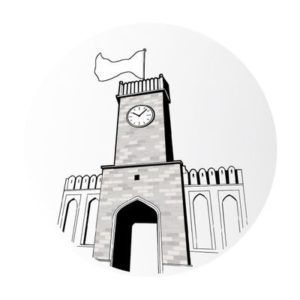
Click the following link for a safe PDF copy: Islamic Emirate of Afghanistan’s Prime Minister — The Day of Victory
________________

Click the following link for a safe PDF copy: Islamic Emirate of Afghanistan’s Prime Minister — The Day of Victory
________________
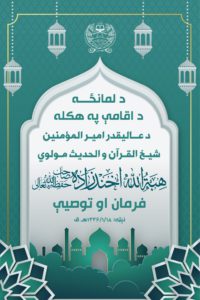
Click the following link for a safe PDF copy: Mawlāwī Hībat Allah Akhūnd Zādah — Commands and Recommendations For Performing Prayer
_____________
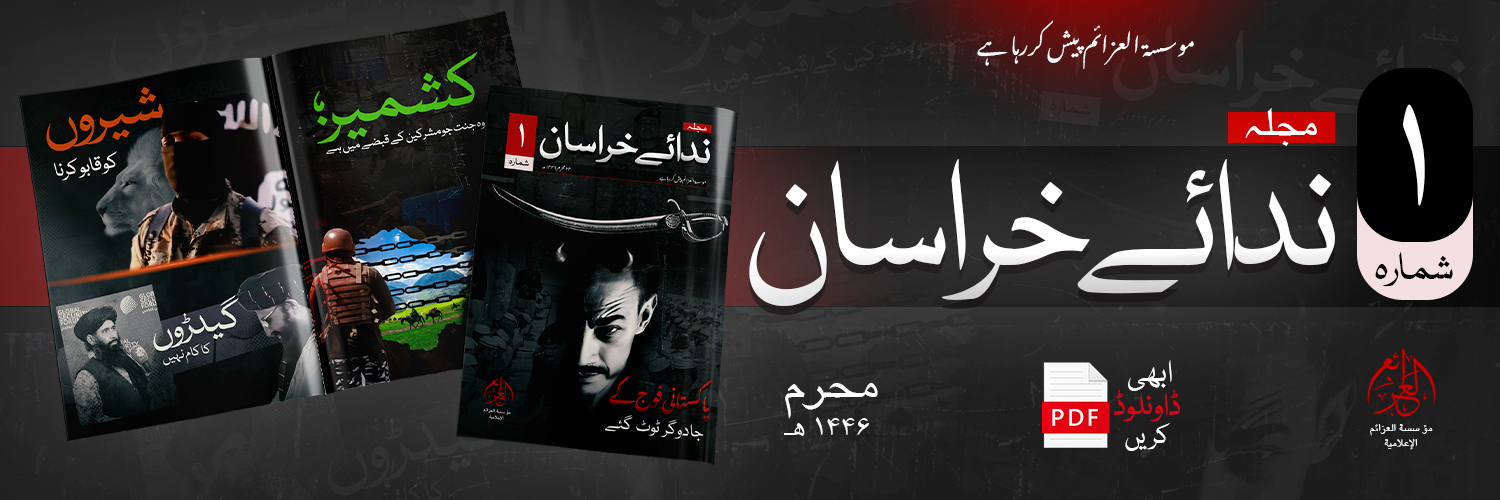
Click the following link for a safe PDF copy: The Islamic State’s Wilāyat Khurāsān — “Voice of Khurāsān #1 (Ur)
_________________
Source: RocketChat
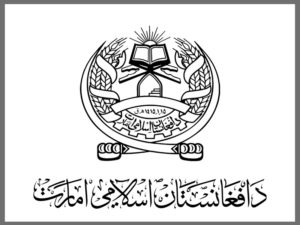
Click the following link for a safe PDF copy: Islamic Emirate of Afghanistan — On the Martyrdom of Dr. Ismā’īl Hanīyah, Political Leader of Ḥamās
_______________

Since the beginning of the year, counterterrorism and law enforcement efforts have zeroed in on the Islamic State’s Khorasan “province” (ISKP). This is unsurprising given that governments have connected ISKP to recent large-scale attacks and plots in Iran, Turkey, Russia, and Europe. Yet other provinces in the IS global network have also been involved in external operations planning—albeit unsuccessfully until the July 15 mass shooting against Shia worshippers in Oman, the first jihadist attack in that country’s history. For this reason, it is more important than ever to understand that IS today has a multipronged strategy to target its enemies, and this strategy is coordinated via its General Directorate of Provinces—individual “provinces” do not have independent strategies.
In the first half of 2024, there have been eight IS external plots and attacks unrelated to ISKP and seventeen related to ISKP. Regarding the successful attacks in Iran, Turkey, and Russia, governments disclosed the ISKP connection, but IS itself did not claim any of them for ISKP. The Turkish incident was designated as a Turkey “province” attack. Of the plots not related to ISKP, three have been connected to the IS province in Iraq (two in Germany, one in Kuwait), two were connected to the Syria province (in Israel and France), and the others were connected to the Somalia and Pakistan provinces (in Sweden and India, respectively). Given the frequency of such plots since January, more can be expected by year’s end.
With the Oman attack, it is still too early to know how it unfolded or what planning was behind it. Most likely, however, it was connected to IS-Yemen. From 2017 to 2019, IS leaders in Iraq and Syria asked the Yemen province to plan attacks in Oman targeting the embassies of countries that participated in the global coalition fighting the organization in Iraq and Syria. Hopefully, the Omani government will be transparent in its investigation and enable a better understanding of the network behind the incident, with Washington providing any necessary assistance based on its strong signals intelligence capabilities. Either way, the foiled plots not related to ISKP can help shed light on the Islamic State’s global plans.
Click here to read the rest.
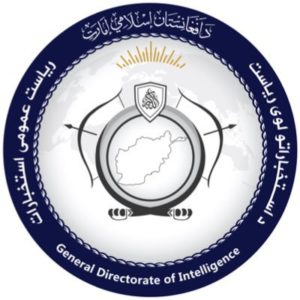
In the name of Allah, the Most Merciful, the Most Compassionate
Praise be to Allah, who has made jihad a way to overthrow tyrants, oppressors, and renegades, and has made preparation and vigilance a path to honor, victory, and empowerment.
Peace and blessings be upon the trustworthy messenger, and upon his family and companions, men of knowledge, planning, reliance, and certainty, and upon those who follow them and walk in their path until the Day of Judgment.
Allah Almighty said:
“And Allah made it only as a sign of good news for you and to reassure your hearts with it. And there is no victory except from Allah, the Exalted in Might, the Wise.” (Surah Al-Imran 3:126)
And after:
To the esteemed Minister of Defense of the Islamic Emirate of Afghanistan, Mawlawi Muhammad Yaqoob Mujahid, the respected Minister of Interior, Khalifa Sahib, the members of the committees appointed for the security of the country and Kabul city, and all the security officials of Kabul province and Kabul city!
Peace, mercy, and blessings of Allah be upon you!
I am pleased that this meeting has been called and arranged under the guidance of the honorable Prime Minister to appreciate the good performance of the appointed committees and security officials in ensuring reliable security during the Eid al-Fitr and Eid al-Adha festivals and the first ten days of Muharram.
Your efforts and those of the mujahideen under your command are certainly deserving of much appreciation and praise. May Allah, the Exalted, accept your efforts and services in ensuring reliable security and, in return, grant you His pleasure and the highest ranks in paradise.
Taking advantage of the opportunity, I would like to draw your and our dear people’s attention to a few points.
1. Defending the beloved country, preventing crimes, ensuring national security, and other specific directions are the special joint and separate duties of the Ministry of Interior, the Ministry of Defense, and the General Directorate of Intelligence, which they carry out in coordination with other organs of the system.
2. In the defense of the country, crime prevention, national security, and other directions, the Ministry of Interior, the Ministry of Defense, and the General Directorate of Intelligence have joint and separate tasks that they carry out in coordination with other organs.
3. The General Directorate of Intelligence performs its duties according to a complete and comprehensive law, all articles and clauses of which are derived from Islamic Sharia and Hanafi jurisprudence, approved by scholars and experts, and ratified by the esteemed Leader of the Faithful. Its implementation is monitored with great precision.
4. The General Directorate of Intelligence performs its duties and activities based on a complete and comprehensive law, all articles and clauses of which are derived from Islamic Sharia and Hanafi jurisprudence, approved by scholars and specialists of the relevant field, and ratified by the Leader of the Islamic Emirate. Its implementation is monitored seriously.
5. In the past, intelligence agencies were used for the torture and torment of innocent people; however, with the rise of the Islamic Emirate to power, an end has been put to all of this. The General Directorate of Intelligence has been completely purged, and instead, pure cadres from the Islamic community have been brought in. All actions of the General Directorate of Intelligence are carried out within the framework of the law made based on Islamic Sharia.
6. Contrary to the conduct and nature of past and contemporary intelligence organizations in Afghanistan, the intelligence personnel of the Islamic Emirate are subject to Islamic Sharia and their law. In case of violation or misconduct, they are held accountable. Praise be to Allah, the intelligence agency is now a lawful and reformed organization.
7. Occasionally, negative propaganda is made by some circles regarding the intelligence agency of the Islamic Emirate, trying to present a false image of it. This propaganda is completely false; the facts are clear to both the people of Afghanistan and all countries of the world. These biased circles also know all those countries in the region and the world that seek peace and prosperity.
8. Afghanistan is now listed among the safe countries of the world; disruptive groups have been crushed, forced to flee from Afghanistan, and are now residing outside Afghanistan’s borders. Our security actions have proven to the world that the Islamic Emirate has the capacity to maintain the security of Afghanistan and can fulfill its commitments in this regard.
9. The propaganda about the presence of multiple groups in Afghanistan made in the media is not real; it is political and aimed at misleading public opinion. However, we call on the world not to view Afghanistan through the lens of false propaganda and fabricated information but to become aware of the ground realities.
10. The Islamic Emirate of Afghanistan has not only ensured the physical security of the people but has also paid special attention to maintaining psychological security.
In the end, we request all our dear countrymen to acknowledge that security is a great blessing from Allah, the Exalted. When security exists, we and you can carry out all aspects of life in a good and reliable environment. So let’s jointly give thanks for this great blessing and cooperate comprehensively with our security organs.
Likewise, I ask all security officials to pay attention to their heavy responsibility. Treat our suffering people well, show great respect to the elders and the youth of the community, and exercise much good interaction.
Peace, mercy, and blessings of Allah be upon you.
___________________

________________
Source: RocketChat
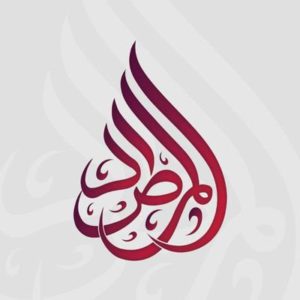
________________
—
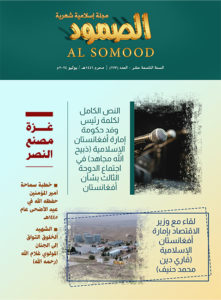
Click the following link for a safe PDF copy: Islamic Emirate of Afghanistan — al-Ṣumūd Magazine #223
______________
To inquire about a translation for this magazine issue for a fee email: [email protected]

The Islamic State today looks different than it did five years ago and is far more integrated now as an organization amongst its global network than al-Qaeda ever was. It has been 10 years since the Islamic State announced itself as a caliphate and more than five years since it lost its last vestige of territory in Syria. However, with the Islamic State back in the news due to an increasing external operations capacity (with attacks in Iran, Turkey, and Russia this year as well as numerous broken up plots in Europe), there is a fundamental misunderstanding of how the group operates today. In many ways, it is either incorrectly viewed through the lens of how al-Qaeda operates (a decentralized branch network), since it had previously been a part of al-Qaeda’s global network, or based on how the Islamic State operated when it was at its prior zenith when it controlled territory in Iraq and Syria. It is also likely why some within the U.S. government may have misinterpreted signals intelligence by pushing the idea that the Islamic State leader targeted in Somalia at the end of May, Abd al Qadir Mumin, became the group’s caliph. These changes in the past five years are crucial for policymakers to understand because the way the threat presents itself today will look different from how policymakers dealt with the issue last decade when much of the focus was on the Islamic State’s territorial control in Iraq and Syria.
The most important body for understanding the Islamic State today is its General Directorate of Provinces, which has previously been based in Syria, but new information suggests that at least at the highest levels of it might now have centrality in Somalia. When one understands that structure, the Islamic State’s actions globally make more sense. It is also why we see far more interaction and connection between its various wilayat (provinces) today than in the past. In many ways, the key aspects that animate the Islamic State as an organization (governance, foreign fighter mobilization, and external operations) remain, they have just moved from primarily being based out of or controlled by its location of origin in Iraq and Syria to being spread across its global provincial network. Its aims remain the same, even if the organization has adapted to a changed environment. It is also why the challenge from the Islamic State today is different from the past and why it is in some ways also more resilient now to pressure than before.
This makes the challenge of the Islamic State more difficult from a security perspective than in the past when there was the ability to primarily zero-in on its efforts in Iraq and Syria. Today, only focusing on Iraq and Syria or any other province independent of understanding its connections to other parts of the group’s global network will lead to missing crucial details due to expediency. This is why, although it is understandable that the United States has shifted a lot of its manpower and budgeting to more existential and larger problem-sets such as China and Russia, it would be a mistake to neglect the Islamic State as a continuing, but evolving security challenge. Therefore, it is still useful to continue to have and add more funded government positions across different agencies and departments to focus on tracking this threat to better get ahead of the next surprise. Otherwise, mistakes of misinterpretation will be made as in the past.
Click here to read the rest.